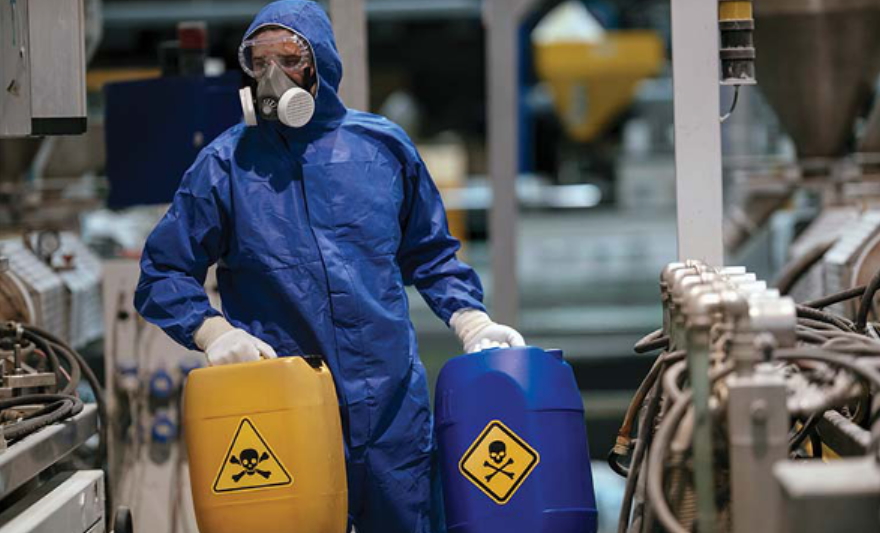Don’t risk it: 3 important tips for increasing workplace chemical safety
- Written by NewsServices.com

You can never underestimate the dangers of chemicals in the workplace. Furthermore, there are many dangers that, without the proper understanding, will fly under the radar.
Whilst the most reputable hazardous chemical awareness training will help your business fight the dangers these hazards present, here are three other tips for improving workplace safety:
-
Keep chemical packaging clean & safe
You must recap bottles, tighten lids and wipe down containers to maintain safe and compliant chemical storage facilities. What’s more, you should never consider leaving hazardous containers unattended in a dangerous position. Instead, it is important to keep them in an outdoor storage container or lockable cabinet when you are not using them.
Chemical residues can produce a variety of threats, including corrosion, flammability and toxicity. Therefore, your packages must be regularly cleaned so that they don’t cause any issues when not in use. Also ensure that your containers, bottles, drums, IBCs and other packages are neatly stored in their holding facility. Ensure they are kept away from closing mechanisms and doors, and only stack packages when it is safe and secure - this is to ensure that your containers don’t fall over and produce a risk of spillage.
These three tips to ensure a greater safety standard in your workplace and - when combined with proper training - can exponentially improve your organisation’s safety.
-
Keep your SDS easily accessible & regularly updated
Your safety data sheets (SDS) are imperative documents which will display the potential threats in your workplace. Certain products pose greater risks than others, and even the same product made by a different manufacturer can be potentially more hazardous than its counterpart.
SDS are pivotal to team safety and understanding, and they also provide an outline for what to do in an emergency situation i.e. fire, spill or other emergency. You can obtain an SDS from your manufacturer or supplier and keep it near the danger areas. SDS need updating every five years, as the information regarding threats in your workplace may have changed over time.
Keep your SDS in a secure and methodical manner, inside an SDS folder that can then be stored inside an SDS document location. If necessary, you can attach these document storage units to your outdoor containers or cabinets to ensure that they can be accessed at a moment’s notice.
-
Reduce battery risks
Batteries are an essential aspect in all workplaces, but they also provide a risk when storing and handling these products. Just like other product threats, batteries can be incredibly hazardous in the workplace and damage property, harm staff and contaminate the surrounding environment whether natural or human made.
It is imperative that you follow the manufacturer’s instructions when it comes to maintaining workplace battery safety. This includes understanding how to charge the battery, store and handle it, as well as the potential threats that each battery poses to your business and staff.
There are many types of batteries found in a typical business, but the style that poses the greatest risk is that of lithium-ion batteries. Explosions and fires occur across Australia, so it’s absolutely vital that you consider the dangers these particular batteries pose to your business.
Charging lithium-ion batteries can produce a range of dangerous threats, and thermal runaway can produce ignition of whole battery stores. To reduce this threat, it is imperative that your team follows the producer’s instructions and that batteries are maintained in ideal conditions. Be aware of impact damage, heat, sunlight and ignition sources, as lithium-ion batteries require a dry, cool space for safe storage and charging.











